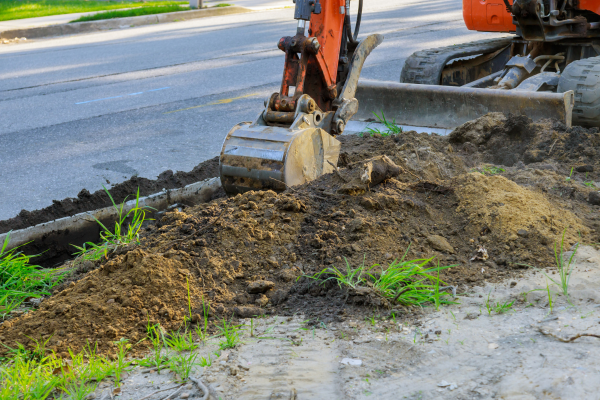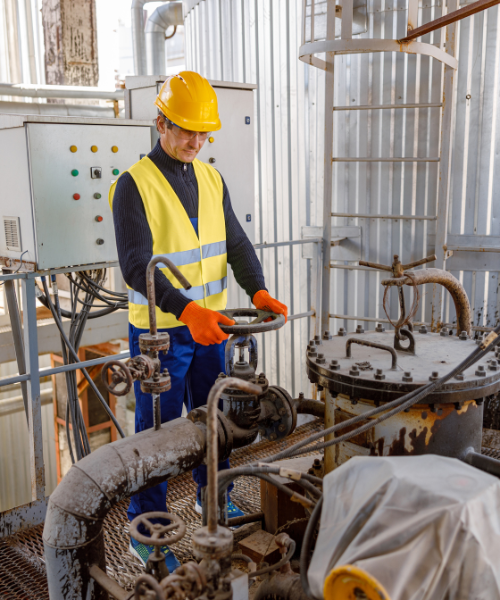JOB PROFILE
What Is a Drainage Engineer?
IN THIS JOB PROFILE
You Will Learn.
- What is a Drainage Engineer?
- What are the responsibilities of a Drainage Engineer?
- What qualifications does a Drainage Engineer need?
- What is the average salary of a Drainage Engineer?
- Who employs a Drainage Engineer?
- What skills does a Drainage Engineer need?
- Where the latest Drainage Engineer jobs are and how to apply for them.

What Is a Drainage Engineer?
A Drainage Engineer is a professional responsible for planning, designing, and maintaining effective drainage systems to manage surface water, prevent flooding, and maintain road infrastructure integrity.
They assess existing drainage networks, conduct hydrological surveys, and design sustainable drainage systems (SuDS) to comply with environmental regulations. Their role involves collaborating with local authorities, construction teams, and environmental agencies to ensure compliance with government standards and improve water management.
What Are the Responsibilities of a Drainage Engineer?
A Drainage Engineer has a range of critical responsibilities to ensure the effective functioning of drainage systems and the prevention of flooding. Firstly, they are responsible for evaluating the existing drainage infrastructure and identifying potential issues or areas of improvement.
This involves conducting comprehensive surveys and assessments to understand the hydrological dynamics and the impact of surface water on the highways.
Additionally, they play a pivotal role in designing and implementing sustainable drainage systems (SuDS) that comply with environmental regulations and standards, aiming to minimise the impact of urbanisation on natural watercourses.
While working as a Drainage Engineer, you will be required to:
- Conduct thorough evaluations of existing drainage infrastructure.
- Design and implement sustainable drainage systems (SuDS).
- Collaborate with local authorities, construction teams, and environmental agencies.
- Monitor the performance of drainage systems and conduct regular inspections.
- Respond to drainage emergencies promptly and implement effective solutions.
- Ensure compliance with environmental regulations and standards.
- Identify and implement maintenance and repair needs for the drainage infrastructure.
Frequently Asked Questions
What Qualifications Does a Drainage Engineer Need?
A Drainage Engineer typically requires a bachelor's degree in Civil Engineering or a related field, accredited by the Engineering Council. Additionally, professional certification from organisations such as the Institution of Civil Engineers (ICE) or the Chartered Institution of Water and Environmental Management (CIWEM) is highly beneficial.
Practical experience with drainage design, hydraulic modelling software, and sustainable drainage systems (SuDS) is essential.
Familiarity with relevant industry standards, regulations, and environmental guidelines, such as those set by the Environment Agency and local authorities, is crucial.
What Is the Average Salary of a Drainage Engineer?
The average salary of a Structural Engineer is around £35,000 per year.
However, this can vary based on factors such as experience, location, the specific organisation, and the complexity of the role.
Who Employs a Drainage Engineer?
The majority of Drainage Engineer jobs are found within government agencies, such as local councils and highway authorities, including organisations like Highways England and Transport for London.
Additionally, consulting firms specialising in infrastructure development, engineering companies, and environmental agencies often employ Drainage Engineers for their expertise in managing and maintaining drainage systems within the context of highways.
Construction firms involved in major infrastructure projects also seek Drainage Engineers to ensure compliance with regulations and the effective implementation of sustainable drainage solutions.

What Skills Does a Drainage Engineer Need?
A Drainage Engineer requires a diverse set of technical and soft skills to effectively manage drainage systems and ensure the integrity of road infrastructure.
Strong proficiency in hydraulic modelling software and drainage design tools is crucial, enabling them to assess, design, and optimise drainage systems effectively.
Knowledge of sustainable drainage systems (SuDS) and their implementation within the regulatory framework is essential, emphasising the need for a solid understanding of environmental guidelines and best practices.
Key skills of a Drainage Engineer include:
- Proficiency in hydraulic modelling software and drainage design tools.
- Comprehensive understanding of sustainable drainage systems (SuDS) and environmental regulations.
- Strong analytical skills for drainage assessments and hydrological surveys.
- Effective communication skills for collaboration with multidisciplinary teams and stakeholders.
- Problem-solving abilities to address drainage issues and mitigate flood risks./
- Attention to detail in ensuring compliance with industry standards and guidelines.
- Adaptability to handle dynamic challenges in the maintenance and management of highway drainage systems.
Highways, Infrastructure & Engineering Insights.
Searching for Your Next Drainage Engineer Job?
If you're searching for your next career opportunity, why not take a look at all the latest Drainage Engineer jobs available now?
We work with hundreds of Local Authorities and private sector organisations throughout the UK so why not get in contact with one of our specialists who can advise on current and upcoming opportunities?
Meet The Highways Team.

Upload CV
If you're searching for your next Drainage Engineer job, why not upload your CV?
Once registered, your CV will be directed to the most relevant consultant and they will contact you when a suitable vacancy becomes available.